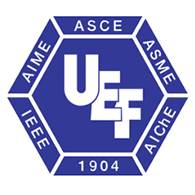Frequently Asked Questions
What are the key dates of the grant cycle?
- May 1st – Grant Concept Papers Due
- June – UEF Grants Committee meets to select concept papers to be selected to submit Full Proposals
- August 1st – Full Grant Proposals due
- August – UEF Grants Committee meets to select proposals to be recommended to the Board of Trustees for funding
- September/October – Board of Trustees meet and select grants to be awarded for the following calendar year
What types of proposals are preferred?
- Collaborative, broad-based, interdisciplinary proposals that further the engineering profession as a whole are preferred.
- Projects that are outside “business as usual” of the proposing organization are preferred.
Do you fund individual research? Technical research proposals and proposals by individuals are seldom accepted.
Do you fund international activities? The UEF funds only proposals from organizations having 501(c)(3) status for activities in the United States.
Do you fund requests from trade associations? Proposals are accepted only from U.S. based organizations classified by the Internal Revenue Service as having 501(c)(3) status. While all proposals meeting the requirements for (1) U.S. based organizations having 501(c)(3) status,
Do you entertain multi-year requests? Multiple-year proposals are welcome, but funding is awarded for a single year only. Proposals for subsequent years follow procedures identical to that of single-year proposals. No commitment for funding of subsequent years of a multiple-year project should be inferred from funding of a prior year.
